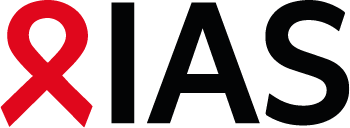Share Abstract
Safe and sustainable anti-HIV hematopoietic progenitor cell-delivered antisense: followup through month 60 from phase I trial
Abstract Content:
Background: HGTV43, a Retrovirus-based vector delivering three U1/anti-HIV-1 antisense genes targeting TAR and two sites of TAT has shown promise in vitro (Liu, et al. 1997). We report data through month 60 postinfusion.
Methods: Nine HIV-1+ subjects were enrolled and seven were treated in this Phase I trial. Autologous CD34+ cells were isolated, transduced, and reinfused. PBMC and CD4+ cells were isolated post infusion at six month intervals at points between 6 and 20 months. These cells were assayed for the presence of anti-HIV-1 antisense RNA by reverse transcription followed by real-time PCR using a Light Cycler (Roche Applied Science) and restriction enzyme analysis on a plus/minus basis.
Results: Of seven treated subjects, five were available beyond 12 months post-infusion. Two subjects were lost to follow-up early in year one. Antisense RNA was present in PBMC and/or CD4+ cells at the time of measurement in all five. Four subjects were available for evaluation through month 60. At month 48, antisense RNA was present in both the PBMC and CD4+ fraction of one subject, and in only CD4+ cells of two subjects. The fourth subject was negative at month 48 and beyond. At month 60, antisense RNA was present in CD4+ cells of only one subject. Antisense RNA was found in CD34+ bone marrow cells in all five subjects, the earliest at 6 months and the latest at 20 months. There were no treatment-related adverse events, no evidence of clonal expansion due to insertional mutagenesis, and no significant change in CD4+ cell count or HIV-1 viral load.
Conclusions: These results are an example of the survival at low levels of transduced CD34+ stem cells in nonablated subjects with sustainable transgene activity as well as the long term presence of engineered cells in the circulating progeny, i.e., CD34+ and CD4+ cells.
Methods: Nine HIV-1+ subjects were enrolled and seven were treated in this Phase I trial. Autologous CD34+ cells were isolated, transduced, and reinfused. PBMC and CD4+ cells were isolated post infusion at six month intervals at points between 6 and 20 months. These cells were assayed for the presence of anti-HIV-1 antisense RNA by reverse transcription followed by real-time PCR using a Light Cycler (Roche Applied Science) and restriction enzyme analysis on a plus/minus basis.
Results: Of seven treated subjects, five were available beyond 12 months post-infusion. Two subjects were lost to follow-up early in year one. Antisense RNA was present in PBMC and/or CD4+ cells at the time of measurement in all five. Four subjects were available for evaluation through month 60. At month 48, antisense RNA was present in both the PBMC and CD4+ fraction of one subject, and in only CD4+ cells of two subjects. The fourth subject was negative at month 48 and beyond. At month 60, antisense RNA was present in CD4+ cells of only one subject. Antisense RNA was found in CD34+ bone marrow cells in all five subjects, the earliest at 6 months and the latest at 20 months. There were no treatment-related adverse events, no evidence of clonal expansion due to insertional mutagenesis, and no significant change in CD4+ cell count or HIV-1 viral load.
Conclusions: These results are an example of the survival at low levels of transduced CD34+ stem cells in nonablated subjects with sustainable transgene activity as well as the long term presence of engineered cells in the circulating progeny, i.e., CD34+ and CD4+ cells.
